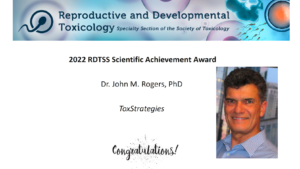The ToxStrategies team is pleased to announce the addition of Ms. Amy Sheppard to our Food and Consumer Products practice. Ms. Sheppard has held increasingly responsible positions with multiple global consumer product manufacturers during her 30-year career, the latter third of which she spent with SC Johnson. Her roles have ranged from a summer intern to practicing scientist in product safety to middle and senior management positions, and her experience includes the use of data-driven risk assessments for products that need to achieve regulatory compliance. She has helped bring to market a variety of consumer- and professional-level products, including cosmetics, over-the-counter drugs, cleaning products, biocides, and pest control products.
In addition to her professional scientific roles, Ms. Sheppard serves her community as an Emergency Medical Technician for the local fire department. She is certified in Hazardous Materials Operations and provides instruction in CPR and general first aid.

